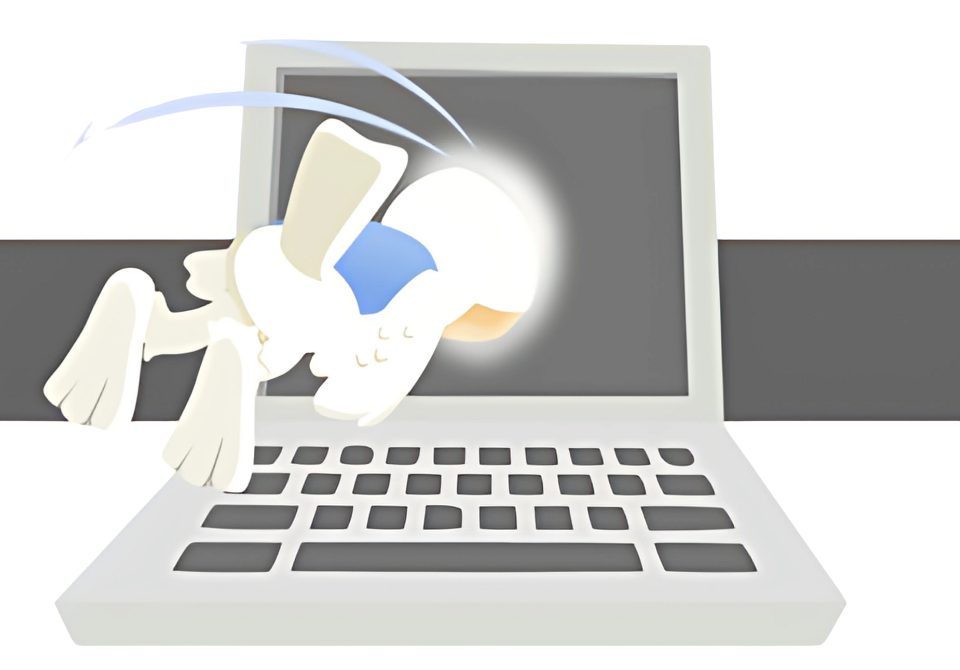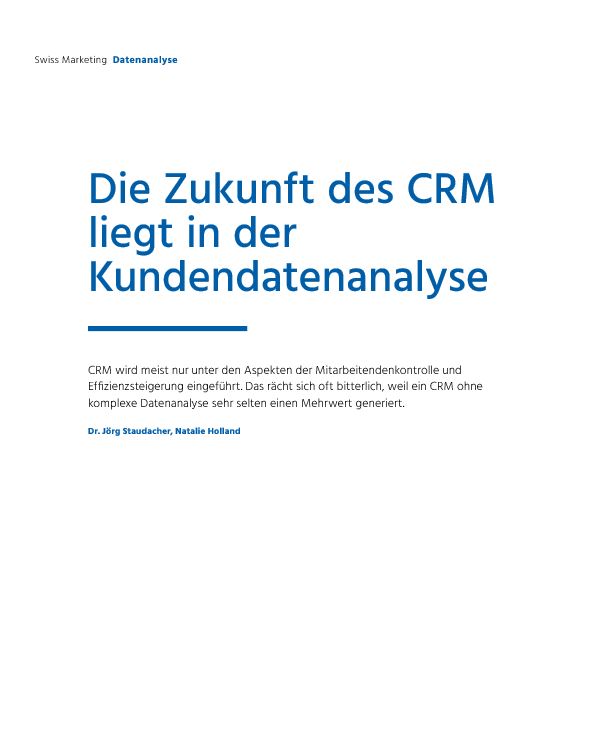CRM Software
CRM software is currently gaining in importance again. As digitalization progresses, companies are increasingly looking to use digital tools in customer relationship management. The term CRM software needs to be specified more precisely. In general, this term can mean many things. Originally, CRM is primarily a control instrument for sales employees and offers various functions for this purpose. The master data for customers can be stored, contact activities can be entered and possible orders can be systematically created. These basic functionalities make it possible to document previous activities to the customer. Ultimately, classic CRM software can’t do much more. This is another reason why numerous studies have come to the conclusion that classic CRM systems have no influence on the economic development of a company.
In addition to this classic sales perspective, the service perspective was added early on. CRM software should also be able to process customer inquiries systematically. The applications create a ticket for each request and this can be processed by different employees. Customer complaints in particular can be dealt with quickly and with a comprehensive understanding of the interaction history. Other functions in this area include setting up an FAQ and managing the responsibilities and absences of service and office staff.
Just a few years ago, a new area was added: marketing automation. The origin of this area lies in the sending of newsletters. While CRM systems are primarily designed to send individual emails, newsletter tools are designed to send newsletters to a large group of customers. However, these tools have been significantly expanded. Marketing automation applications allow not only the sending of emails, but also the determination of possible activities depending on the customer’s reaction. This means that further activities can be triggered automatically when the website is opened, clicked and/or visited. This in relation to the customer and the employee.
A modern CRM/automation system therefore consists of three components:
- CRM
- Service
- Marketing automation
In view of the increasing importance of social media, more and more CRM software is also offering the integration of social media activities. However, it is important to check which channels the respective system supports. LinkedIn in particular is not supported by many systems. A Facebook connection has also become somewhat “old-fashioned”.

Our offer in the field of CRM consulting
As an independent CRM consultancy, we support you in developing the optimal CRM strategy. We take a close look at your processes for customer data acquisition and use, as well as your marketing, sales and service activities. The goal is to increase your efficiency in customer relationship management. This is supported by the use of as many automations as possible. In addition, we optimize your growth strategy together with you. This is against the background of improving customer acquisition and retention, so that not only the efficiency but also the effectiveness of your activities is improved.
Further article on the topic
CRM is usually introduced only under the aspects of employee control and efficiency increase. This often takes bitter revenge, because a CRM without complex data analysis very rarely generates added value.

